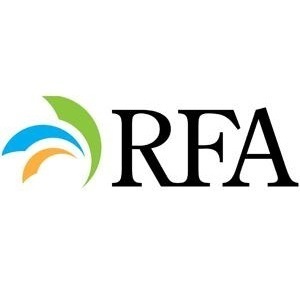Refineries given RFS waivers is 'outrageous abuse of the statute'



April 3, 2018
BY The Renewable Fuels Association
Reuters reported on April 3 that the U.S. EPA has exempted several refineries owned by one of the nation’s largest oil refining companies, Andeavor, from compliance with the 2016 Renewable Fuel Standard renewable volume obligations (RVOs). The exemption releases three of Andeavor’s refineries, two in North Dakota and one in Utah, from their 2016 RFS obligations.
“EPA has struck again,” said Bob Dinneen, president and CEO of the Renewable Fuels Association. “It appears the agency has initiated a fire sale on RFS demand. Providing a small refiner waiver to a company like Andeavor is laughable and abandons the commitment of President Trump to protect the RFS. This is an outrageous abuse of the statute.”
According to EPA’s definition of a small refiner economic hardship waiver, it is meant for small refiners producing less than 75,000 barrels per day and “may only be granted if EPA determines, based on supporting evidence in the petition, that compliance with Renewable Fuel Standard obligations will impose disproportionate economic hardship on the refinery in the year for which the exemption is requested.”
“This is yet one more action in a series of disturbing moves made after the final RVOs were issued,” Dinneen continued. “These latest actions have been under the cover of darkness, with no transparency whatsoever. To date, EPA has still not disclosed which refiners received exemptions from 2016 or 2017 RFS obligations. No one really knows how far these exemptions go, or how many total companies have received these waivers. Any claims the RFS is negatively impacting the oil industry are absurd, much less the fifth-largest refiner in the country, which posted a profit of nearly $1.5 billion last year. Suffice it to say we are exploring all our options to return the RFS to what the statute intended and what the president has supported.”
Advertisement
Advertisement
Additionally, in November, nearly two years after EPA finalized the 2016 RVOs, the agency disclosed that it had exempted at least 14 small refiners from the 2016 RFS requirements, amounting to at least 515 million renewable identification numbers (RINs) being removed from the total 2016 obligation and effectively reducing the RVO. This is clearly intentional demand destruction and a subversive attack on the RFS.
Advertisement
Advertisement
Related Stories
The U.S. EPA on July 8 hosted virtual public hearing to gather input on the agency’s recently released proposed rule to set 2026 and 2027 RFS RVOs. Members of the biofuel industry were among those to offer testimony during the event.
The USDA’s Risk Management Agency is implementing multiple changes to the Camelina pilot insurance program for the 2026 and succeeding crop years. The changes will expand coverage options and provide greater flexibility for producers.
President Trump on July 4 signed the “One Big Beautiful Bill Act.” The legislation extends and updates the 45Z credit and revives a tax credit benefiting small biodiesel producers but repeals several other bioenergy-related tax incentives.
CARB on June 27 announced amendments to the state’s LCFS regulations will take effect beginning on July 1. The amended regulations were approved by the agency in November 2024, but implementation was delayed due to regulatory clarity issues.
SAF Magazine and the Commercial Aviation Alternative Fuels Initiative announced the preliminary agenda for the North American SAF Conference and Expo, being held Sept. 22-24 at the Minneapolis Convention Center in Minneapolis, Minnesota.
Upcoming Events










